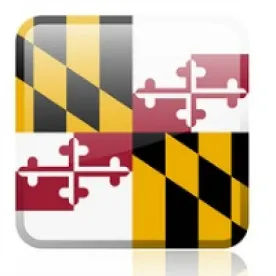Quick Hit: Maryland has joined Virginia and New York in enacting a COVID-19 workplace safety law (HB 581), the Maryland Essential Workers’ Protection Act (the “EWPA” or the “Act”). The law imposes workplace requirements on certain employers during a health emergency – employers that operate in certain essential sectors and have employees who must work onsite in essential functions. It will apply during the current COVID-19 pandemic, but only while there remains a declared state of emergency in Maryland. The new requirements focus on providing safe working conditions, reducing the risk of transmission in the workplace, and providing leave.
More Detail: The Act outlines actions certain employers must take while a state of emergency is declared due to a “catastrophic health emergency” related to a communicable disease. Maryland has been under such a state of emergency due to the coronavirus pandemic since March 2020.
The EWPA applies only to “essential employers” in industries and sectors “identified by the governor or a federal or state agency as critical to remain in operation during” such an emergency. Currently, this would apply to industries identified by Order of the Governor of the State of Maryland, Number 20-03-23-01, dated March 23, 2020, and the U.S. Department of Homeland Security Cybersecurity & Infrastructure Security Agency’s Guidance on Essential Critical Infrastructure Workers, dated December 16, 2020, which include healthcare, pharmaceutical, chemical manufacturers, emergency services, financial services, education, food and agriculture, energy, water and wastewater systems, transportation and logistics, and communications and information technology, among other sectors.
Under the Act, a covered “essential employer” is one operating in a covered industry that employs an “essential worker”, which in turn is defined as: (1) an employee who “performs a duty or work responsibility during an emergency that cannot be performed remotely or is required to be completed at the work site”; and (2) provides services the employer determines “to be essential or critical to its operations.”
Among other things, the Act requires covered employers during a covered public health emergency to:
-
Provide working conditions that comply with the safety standards adopted by a federal or applicable state agency;
-
Provide “necessary amounts” of safety equipment recommended during the emergency at no cost to the workers, subject to availability;
-
Adopt, maintain, and post written protocols regarding the applicable safety standards in effect during the emergency;
-
Report all positive test results to the Maryland Department of Health;
-
Provide essential employees with certain public health emergency paid leave to isolate or to care for themselves or a family member, provided the federal or state government has provided the employer with funding for such leave;
-
Take proactive steps to minimize the risk of workplace transmission of the infectious disease that is the subject of the emergency, including informing workers if they may have been exposed in the workplace, and paying for testing if such testing is not already covered by the worker’s insurance or able to be obtained free of charge; and
-
Implement any other requirements or measures established by the Governor or a federal or applicable state agency to ensure the general health and safety of essential workers.
The Act additionally prohibits employers from knowingly misclassifying essential workers as independent contractors or another classification to avoid providing compensation or benefits under the Act, and prohibits retaliation against employees for exercising rights under the Act.
Workers may submit complaints of alleged employer violations of the EWPA to the Commissioner of Labor and Industry. If the Commissioner determines the employer violated a provision of the Act relating to public health emergency leave, the employer could face monetary penalties in the form of the full value of any unpaid public health emergency leave and any actual economic damages, an amount up to three times the value of the essential worker’s hourly wage for each violation, and a civil penalty up to $1,000 for each essential worker for whom the employer was not in compliance. If the Commissioner determines any of the anti-retaliation or provisions of the Act were violated, the Commissioner can file a complaint to reinstate the employee with back pay or “other appropriate relief.”
The EWPA further directs Maryland’s Secretary of Labor, within 2 weeks after the Act goes into effect, to either adopt the federal OSHA Emergency Temporary Standard related to COVID-19 if it has been issued or, if not, to adopt a state-level Emergency Temporary Standard related to COVID-19 that meets or exceeds the guidance published by OSHA on January 29, 2021 and complies with the Act. As the federal OSHA Emergency Temporary Standard was released on June 10, 2021 and will go into effect once it is published in the Federal Register, it appears likely Maryland’s Secretary of Labor will adopt this federal standard rather than adopt a state-level alternative.
Governor Hogan announced on May 28 that he will allow the bill to become law without his signature.




 />i
/>i


